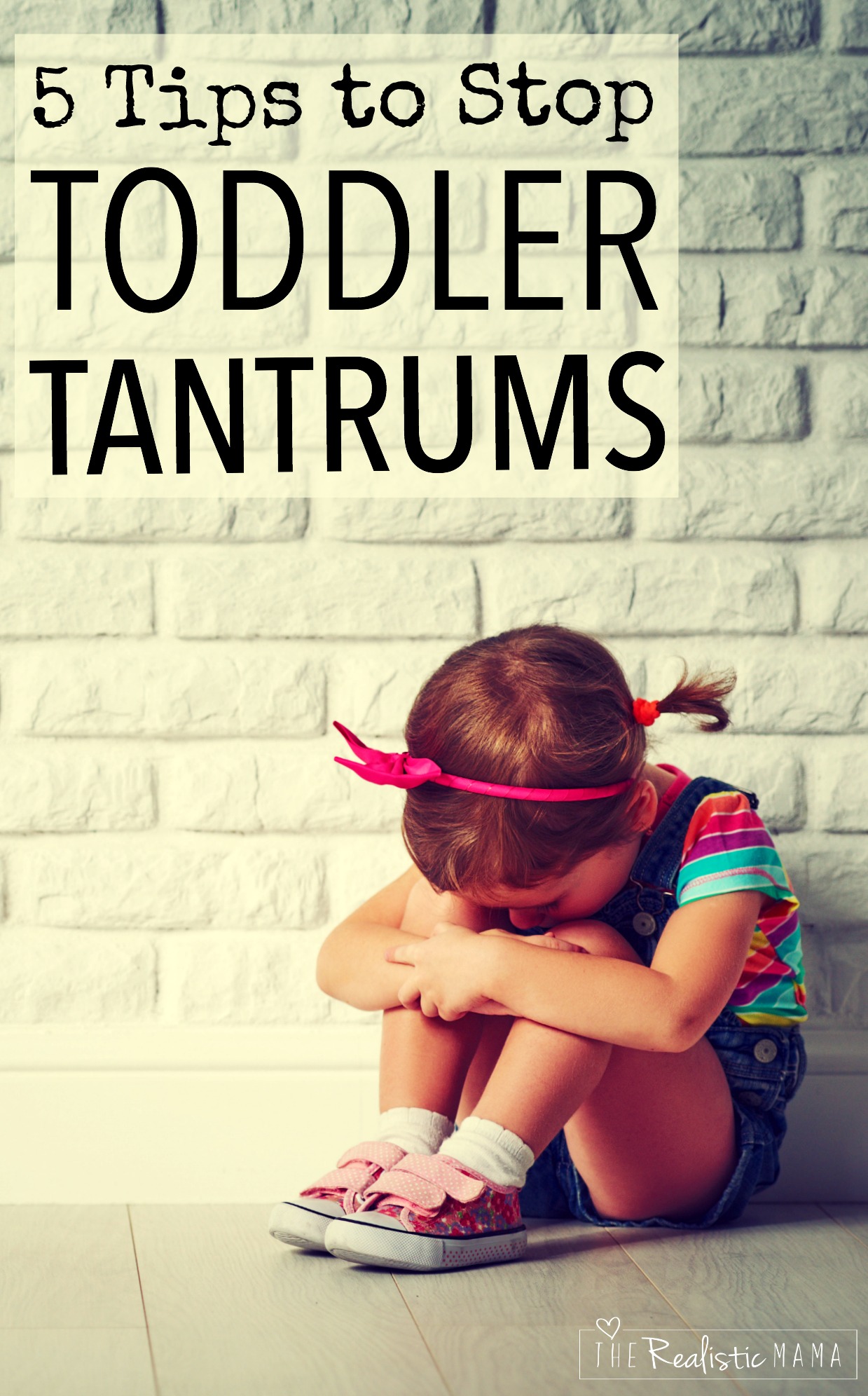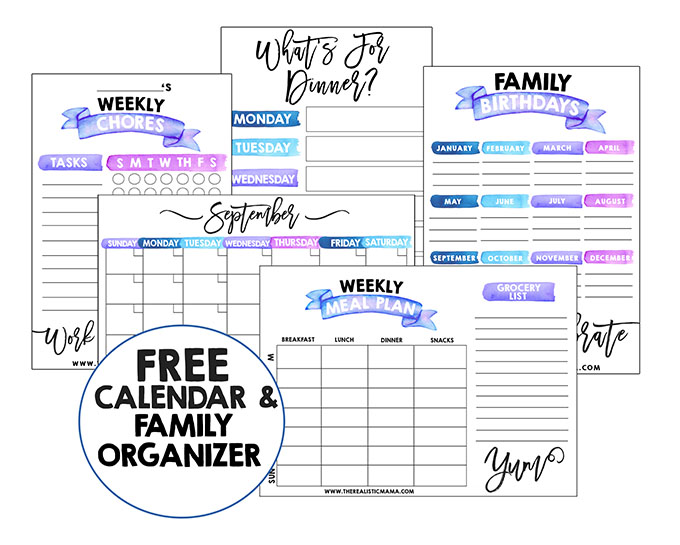Are you a mom of a toddler? Then you are guaranteed to have witnessed the screaming, thrashing, and crying that is toddler tantrums, on countless occasions. You can’t get past the toddler years unscathed, tantrums are just going to happen – they are normal and a natural parts of your toddler’s development.
However, there is hope! There are things you can do to cut down on the frequency and duration of your child’s tantrums.
The first thing that needs to be done is for you to observe your toddler over the next week and try to find common threads or events of when tantrums are occurring. This will help you narrow it down and find the underlying cause which will allow you to prevent many of the meltdowns.
5 Easy Tips to Stop Toddler Tantrums
1. Have Routines-
Toddlers really do thrive on routine. Having a routine does not mean you need a rigid schedule that is measured down to every last minute.
A routine is just a general guideline of your day that allows your toddler to know and anticipate what is coming next.
So try to eat, nap, play, etc on a pretty consistent schedule. Tantrums can increase when there is no routine because toddlers feel out of control, having some structure makes such difference.
2. Get Enough Sleep-
If you notice an increase in tantrums, you might want to take a look at your child’s sleeping patterns. Make sure that your toddler is getting enough sleep.
Nothing causes a outbursts quite like tiredness, hey even I get that way so it makes sense that it would be that way for toddlers as well.
According to the National Sleep Foundation toddlers need to get 12-14 hours of sleep. That can be at night or broken up between night and naps.
Some toddlers give up on daytime naps early and that makes night sleeping even more important. Try to create a sleep routine and a predictable early bedtime.
3. Keep Hunger at bay-
Just like sleep, hunger is a known to trigger outbursts not only for children but, for adults as well.
Make sure your child has a snack when you are out and about. Keep easy snacks in your purse or diaper bag, so you always have a snack on hand in any situation.
If you are noticing an increase of tantrums at home and you think it may be related to hunger you may need to change the time of meal and snack times or offer more food during growth spurts.
4.Teach About Emotions-
Many tantrums occur because of the frustration of not being able to recognize and articulate emotions. By helping children know what feeling they are feeling, and how to appropriately verbalize it, will cut down the frequency of tantrums dramatically.
One way to do this is for you label your child’s feeling and empathize with them. When they begin a tantrum say something like “You are mad, mad, mad! (labeling). It is hard when mommy makes us leave the park, you are having fun! (empathizing)”.
Help your toddler understand emotions by pointing out emotions of characters in books or tv shows and movies. You can also make an emotions board book which is a fun way to learn about emotions. Go here for other ideas on teaching toddler emotions
5. Teach Coping Skills-
As I mentioned before, despite the 4 previous steps, tantrums will still happen (although hopefully less frequently). Since tantrums will occur no matter what, the best thing to do is to teach coping skills. Learning to deal with strong emotions is a learned skill and it takes practice.
So what are some healthy coping skills? What works will vary with the child but some common ones are deep breathing, counting, singing a song, hugging, drawing or painting a picture, stomping, giving them space (some children really just need to be left alone to gain their composure).
These are just a few suggestions. There is no wrong way to cope as long it is not violent or destructive and it is acceptable to you.
One way to teach coping skills is to role play with toys. When playing with your child, have the toys act out a tantrum or strong emotions and you can then have the toy deal with it in a healthy way.
For more ideas of teaching coping skills check out the do’s and don’ts of teaching your child to cope with anger.
Toddler tantrums are not fun and can be some of the most trying parts of parenting. However, with these easy tips I hope that you can cut down on the frequency of tantrums and be on your way to a calm house and child!

Love this post? Connect with us:
 This post was written by Brittany:
This post was written by Brittany:
Brittany is a mom of two who enjoy staying how with her 2 girls. She is also the founder of Love, Play, Learn, sharing kids’ activities, crafts, and fun that encourage learning through play. She has a passion for learning and play and is dedicated to creating a family full of love.
Share on Facebook:
P.S. Are you looking for extra side income? I make full-time income blogging part-time—check out this easy step-by-step tutorial on how start a blog (no tech knowledge required).
Download My Free Family Organizer

Ready to de-stress + spend more time with your kids?
Life gets busy. I hear you. I'm here to show you how to CREATE more time for what matters most. Get a free family organizer as a thank you for joining our newsletter – includes monthly calendars, chore charts, meal planners and more...






6: Give choices
7 give warning of changes within the day.
8. let child explore and finish at own pace
9 pick your battles but make sure child knows no means no, do not backtrack.
10: Parent with positivity, say yes whenever you can and hug/smile/love often
Thank you for adding the additional 5 steps. Raising children is not easy, so matter how great a parent you are. Any and all help and suggestions are greatly appreciated!